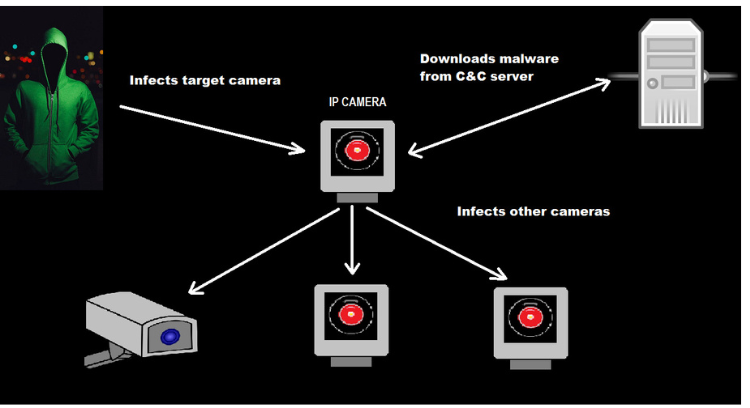How Internet Shows Perspectives: The Power of Diverse
Utilizing the Internet as a Viewfinder
With the internet, we can see different points of view more clearly. Online dating brings together people from various countries, backgrounds, and beliefs, enabling a rich exchange of thoughts. This flood of information can, however, sometimes cause misunderstanding or misleading information. Understanding how the internet shows different points of view is therefore essential for handling its complexity.
Multiple Voices Have Power
Multiple voices can be listened to more clearly through the internet, one of its great features. Bloggers, social networking sites, and groups all give people the space to share their opinions and experiences. Giving everyone equal access to information means that marginalized groups can have attention and publicity that they could not have through traditional media.
For instance: Social movements
Good examples are the social protests, #MeToo and #BlackLivesMatter. The internet made it easier to get people to care about these causes and help with them. People began to feel connected and united because of the ability to share their personal stories and start conversations about issues. In this group action, the internet displays different aspects of viewpoints while stressing the importance of welcoming everybody.
The Algorithm Impact on Views
Different views can be found on the internet, but one must not forget that algorithms have a profound impact on the points of view we observe. Social media sites and search engines usually show users material that upholds their beliefs and preferences.
Echo Chamber Effect
This can lead to an “echo chamber effect.” This is where the individual will typically interact with information that agrees with their views. This may be difficult to interpret complex issues because of it. Individuals will gradually become less willing to hear different perspectives and can eventually limit their worldview.
Divided politics
For instance, political polarization exemplifies how computers may alter public opinion. Algorithms in social media usually favor material that is sensational enough to affirm the political view of the users. Reinforcing such disagreements might make it harder to have a productive conversation.
No More Echo Chambers
People can take action against the echo chamber effect. Multiple sources of information and seeking opposing views will help users acquire a deeper knowledge of many issues. This method broadens their view and encourages empathy and deep thinking.
Why misinformation changes people’s minds
Apart from the echo chamber effect, another big problem with trying to figure out how the internet shows views is that it spreads false information. False information created within a short period can alter how people think and what they decide to do in their lives.
Spreading false information
Because the internet is so viral, false information spreads very quickly. Spreading fake information especially on social media sites can leave people confused and therefore less likely to trust others. Misleading information can have very real effects on many fronts ranging from public health to political debate.
Using the example of health misinformation
Misinformation about vaccines spread like wildfire on social media during the COVID-19 pandemic. Apart from hurting public health efforts, this spread of wrong information made people less likely to get vaccinated. Figuring out if the benefits of the internet are worth the risks means knowing how false information works.
Techniques for Spotting False Information
Critical media literacy skills are needed to fight false information. Doing this means checking sources, using multiple sources, and being aware of biases. Doing these things can help people make better choices and understand the different points of view that are expressed online.
Using the Internet to Learn
Although false information and “echo chambers” can be annoying, the internet is still a great way to learn. Our knowledge of many subjects can be improved by using its many tools.
Information Access
An enormous amount of information that many people could not get before is now available on the Internet. On educational websites, online classes, and forums, it is possible to learn from experts and listen to different points of view. This makes information more available, letting people learn more and think more critically about the different points of view.
Online learning platforms
Other online schools, such as Coursera, Khan Academy, and edX, offer various classes that one can take at his or her own pace. This democratization of education focuses on the ability of the internet to show different points of view and make people more educated.
Collaborative Learning
The internet also helps people learn collectively. People can have fruitful arguments, share their ideas, and learn from each other in discussion boards and online study groups. Collective learning not only improves the learning process but also fosters critical thinking and keeping an open mind.
Emotional and mental effects of online perspectives
Exploring how the internet displays points of view also includes looking at the mental and emotional impacts of online interactions. Using technology can make you feel many things, from motivated and inspired to worried and angry.
How Online Communities Affect Others
Individuals facing personal issues can find solace and validation in online groups. Community forums on mental health or a specific hobby, for example, can help people connect and feel less alone and understood. Belonging can have a good effect on mental health.
support groups
But many health-related support groups are already active online, offering people a safe place to talk through their problems and gain help. People in these groups show how the internet can broaden people’s views and make places where people feel supported.
The Bad: Cyberbullying and Toxicology
Furthermore, the internet can make people vulnerable to negativity and hatred. Bullying, harassment, and toxic encounters online can be bad for mental health. Understanding the two sides of online exchanges will help determine if the benefits of the internet are worth the emotional cost.
Looking Ahead: The Future of Perspectives in the Digital Age
The internet will continue to change the way we think as technology increases. New technologies like virtual reality and artificial intelligence (AI) claim to change our online experiences even more.
Perspectives and Virtual Reality
Virtual reality (VR) will immerse people completely in other worlds, providing them with alternative ways of looking at problems. An example of such VR experiences that replicate everyday life in various countries can help people understand and empathize with others. These are creative ways of storytelling, showing what the internet could do in the future about showing different viewpoints.
Content customized through artificial intelligence
Further, material choice is vital for users based on their choice through the incorporation of artificial intelligence. Some individuals think that this will make the user experience even better, but it will make the echo chambers stronger. The key to the future will be the mix between personalization and exposure to various points of view.
Are the benefits worth it?
Overall, understanding how the internet represents different viewpoints is important to navigate its complexity. For instance, the internet provides different voices and allows people access to knowledge. However, the problems of misinformation and the echo chamber effect may make it difficult to understand.














Post Comment